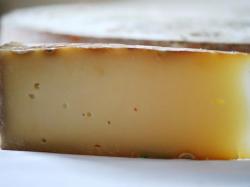Microbes Aid Raw-Milk Cheese Safety
August 3, 2010 | 1 min to read

Interest in cheeses made from unpasteurized cheeses is growing as consumers embrace traditional, artisan foods. But as their popularity rises, so do questions about the safety of these products. However a recent study indicates the naturally occurring population of microbes may provide protection against Listeria.
The July/August issue of Dairy Science and Technology published a paper from the 4th International Dairy Federation Dairy Science and Technology Week, in Rennes, France that investigated whether microbial diversity can help guarantee the microbial safety of raw milk cheeses. The Raw Milk Cheesemakers Association describes raw milk cheese as: “Cheese produced from milk that, prior to setting the curd, has not been heated above the temperature of the milk (104°F, 40°C) at the time of milking and that the cheese produced from that milk shall be aged for 60 days or longer at a temperature of not less than 35°F (2°C) in accordance with U.S. FDA regulations.”
Researchers found that microbial consortia—multiple interacting microbial populations—from the surface of raw milk cheeses can self-protect against Listeria monocytogenes. The study showed, 10 complex microbial consortia among 34 tested from the surfaces of raw milk Saint-Nectaire cheeses were particularly effective for reducing the growth of L. monocytogenes on cheese surfaces compared to a commercial ripening culture, despite the high pH values on the surfaces.
To read the rest of the story, please go to: Food Product Design.
